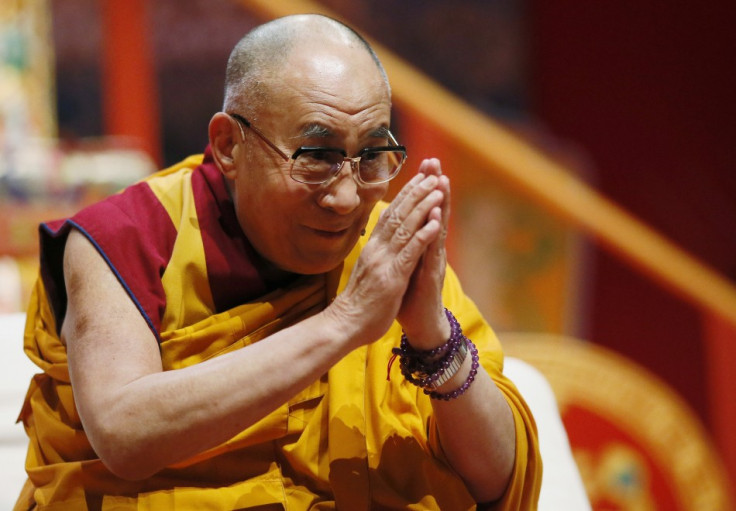Dalai Lama hopes he is the last so a 'stupid' one doesn't take his place

The Dalai Lama said he might the be the last to hold the title as he hopes the tradition of choosing the new Tibetan spiritual leader "ends with a popular one".
The 14th Dalai Lama said he realises he might not have a successor following his death as the decision on whether to appoint a new one was "up to the Tibetan people".
China has insisted it has the right to choose who the next Dalai Lama is, but the current leader says that he will not be "reincarnated" in the Communist state if Tibet is not free.
"The Dalai Lama institution will cease one day. These man-made institutions will cease," the 79-year-old told BBC 2's Newsnight.
"There is no guarantee that some stupid Dalai Lama won't come next, who will disgrace himself or herself. That would be very sad. So, much better that a centuries-old tradition should cease at the time of a quite popular Dalai Lama."
Under Tibetan tradition, the new Dalai Lama is chosen by Buddhist priests based on if a child shows signs he is the reincarnation of the previous leader.
But there are fears China may impose their choice of the new Dalai Lama over Tibet. This previously happened in 1995, when China rejected the Dalai Lama's choice for Panchen Lama - Tibetan Buddhism's second-highest figure – and chose their own candidate.
The Panchen Lama plays an integral part in choosing the next Dalai Lama and the whereabouts of the current leader's choice of boy for the role is still unknown.
Elsewhere in the interview, the Dalai Lama said more needs to be done in the international community to encourage China to become a democracy to help the world economy.
"They should be welcome, but at the same time the free world has a moral responsibility to bring China into mainstream democracy - for China's own interests," he said.
The 79-year-old is the longest serving Dalai Lama and has served in the role for 64 years. He fled Tibet in 1959 after a failed uprising against Chinese rule and has lived in India ever since. He no longer has any political responsibility in Tibet having handed it to Lobsang Sangay in 2011.
© Copyright IBTimes 2024. All rights reserved.






